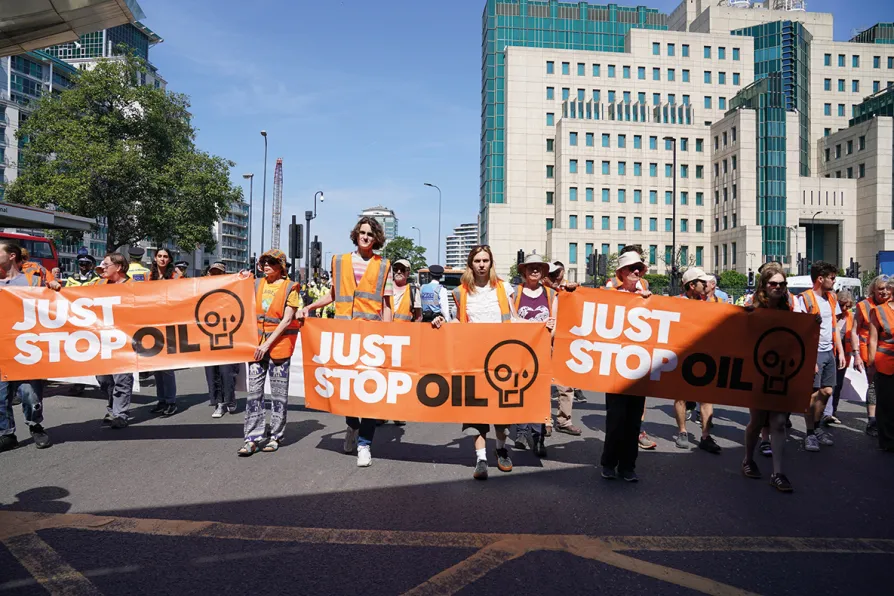MIKE COWLEY welcomes half a century of remarkable work, that begins before the Greens and invites a connection to — and not a division from — nature
Then they came for the slow-walkers
We face an avalanche of repressive, anti-democratic legislation designed to subjugate protest. Is an all-out uprising becoming the only solution, asks DAWN EVANS


SO yet another bid to block a repressive anti-democratic law has failed in Parliament, and police are to get even more powers to restrict protests and demonstrations.
This time it is aimed at marches that are “likely to cause more than minor delays” and is aimed primarily at the so-called slow-walking protests that have been carried out mainly by the Just Stop Oil environmental movement over recent months.
Last week on June 12 Tory MP Kit Malthouse stated in Parliament that the reason it is necessary to bring in this special secondary legislation called a statutory instrument, is because slow-walking on roads is a different category of protest.
Similar stories

Court of Appeal rules key anti-protest legislation was forced through unlawfully

What we are seeing now in the policing of Gaza protests is a manifestation of an authoritarianism that the government intends to inflict on our country, argues CLAUDIA WEBBE












